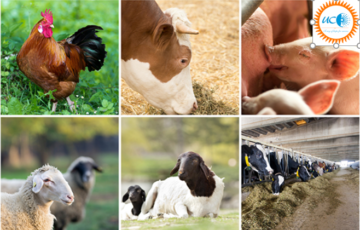Internet of Things and Artificial Intelligence in Agriculture
Why in the News?
Recently, various activities have been taken up by the government, using Internet of Things (IoT) and Artificial Intelligence (AI) in agriculture.
- The Department of Science & Technology (DST) is implementing a National Mission on Interdisciplinary Cyber Physical Systems (NM-ICPS).
- Under the Mission, 25 Technology Innovation Hubs (TIHs) have been set up in premier institutes of national importance across the country in advanced technology verticals.
- Three of these TIHs are involved in the applications of Internet of Things (IoT) and Artificial Intelligence (AI) in Agriculture with objective of carrying out research, translation and technology development for various technologies including IoT and AI.
- AI4ICPS Foundation in technology vertical “Artificial Intelligence and Machine Learning” set up at IIT Kharagpur.
- Some of the applications of AI and IoT in Agriculture are in the areas of
- Precision Farming,
- Agricultural Drones and
- Hopping systems,
- Livestock Monitoring,
- Monitor Climate Conditions,
- Smart Greenhouses,
- AI and IoT based Computer imaging etc.
- Precision Agriculture,
- Predictive and Forecasting models using AI for Crop Health Monitoring and Soil health Monitoring.
Various technologies viz., Satellite, Unmanned Aerial Vehicles (UAVs), Simulation models, IoT devices and AI/ML techniques were used in the study to derive the yield estimates at Gram Panchayat level.
| S.No. | Activity | Application |
| 1. | Development of image (Visual and X-Ray) based mango sorting and grading system and sensor-based monitoring system with block chain technology for supply chain of banana | For grading of mangoes into different quality grade which is the prime needs for mango processing industries as well as for any commercial applications. Block-chain technology will be used to access and monitor the quality of banana in supply chain and hence traceability of the banana from source till the end point. |
| 2. | Development of IoT-Based Real-Time Intelligent Monitoring and Controlling System for Cold Storage | For real-time monitoring and control of micro-environment inside storage room for prediction of status of product quality for commodity being stored. |
| 3. | Development of Vision guided AI-enabled Robotic Apple Harvest Under National Programme on Electronics and ICT Applications in Agriculture and Environment.
|
For identification of the matured Apples using Machine Vision Techniques and harvesting and safety conveying of apples in a storage unit. |
| 4. | Development of Automatic Jute Grading System.
|
For efficient grading of jute. |
| 5. | Development of IoT based irrigation system | For automatic and efficient irrigation of agricultural crop. |
Use of AI in Agriculture
- AI Helping Analyze Farm Data: Every day, farms generate tens of thousands of data points on the ground. Farmers may now use artificial intelligence (AI) to assess a range of data in real-time, including weather, temperature, water use, and soil conditions gathered from their farm, to better guide their decisions.
- In an effort to raise output and improve agricultural precision, farmers are also employing AI to develop seasonal forecasting models.
- Precision Agriculture: AI is used in precision agriculture to help identify pests, malnourished plants, and plant diseases on farms.
- Artificial intelligence (AI) sensors can identify and target weeds, then decide which herbicides to use within the appropriate buffer zone.
- This aids in avoiding the overuse of herbicides and other substances that end up in our food.
- By using precision agriculture, productivity would rise.
- Tackling the Labour Challenge: Most farms are struggling with a labour deficit as fewer individuals enter the farming industry.
- AI agriculture bots are one way to help with this labour crisis. These robots are employed in a variety of ways to supplement human labour. These robots, for instance, can harvest crops more quickly and in greater quantity than human labourers, identify and remove weeds with greater accuracy, and save agricultural costs because they work continuously.
Farmers are also starting to seek advice from chatbots. Chatbots assist with a wide range of topics and offer suggestions and advise on particular agricultural issues.




